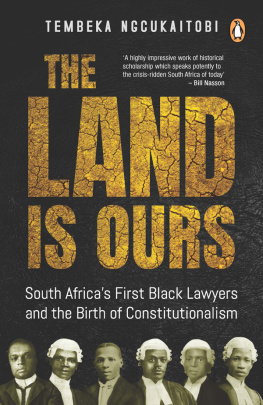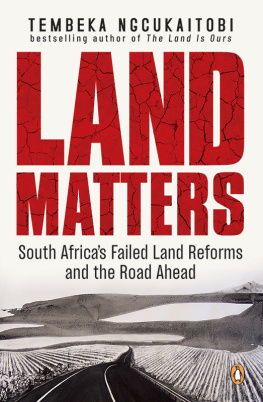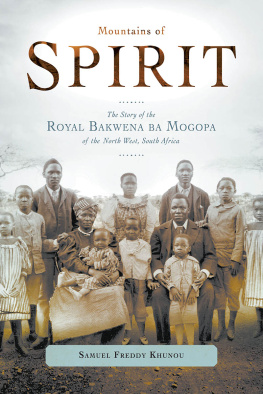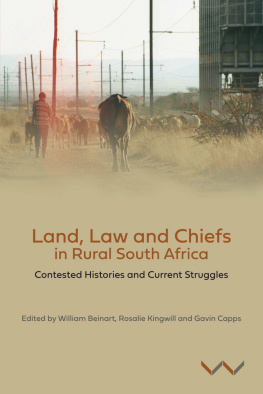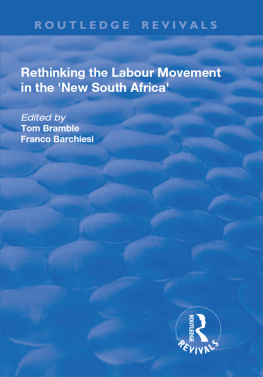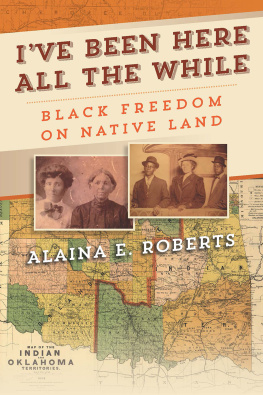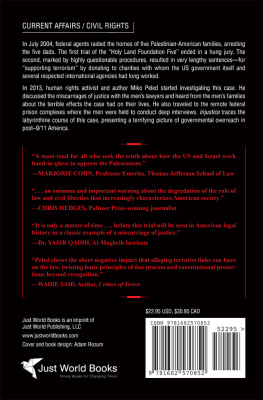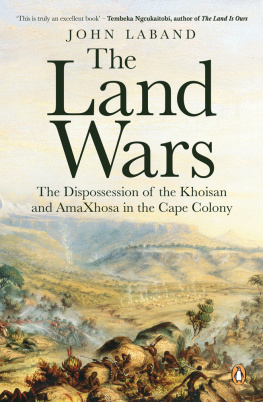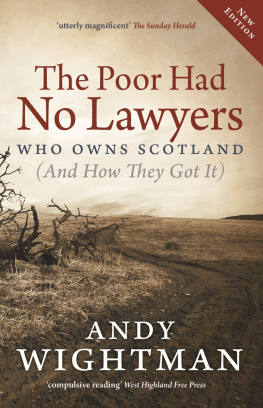Tembeka Ngcukaitobi - The Land Is Ours: South Africas First Black Lawyers and the Birth of Constitutionalism
Here you can read online Tembeka Ngcukaitobi - The Land Is Ours: South Africas First Black Lawyers and the Birth of Constitutionalism full text of the book (entire story) in english for free. Download pdf and epub, get meaning, cover and reviews about this ebook. year: 2018, publisher: Penguin Random House South Africa, genre: Politics. Description of the work, (preface) as well as reviews are available. Best literature library LitArk.com created for fans of good reading and offers a wide selection of genres:
Romance novel
Science fiction
Adventure
Detective
Science
History
Home and family
Prose
Art
Politics
Computer
Non-fiction
Religion
Business
Children
Humor
Choose a favorite category and find really read worthwhile books. Enjoy immersion in the world of imagination, feel the emotions of the characters or learn something new for yourself, make an fascinating discovery.
- Book:The Land Is Ours: South Africas First Black Lawyers and the Birth of Constitutionalism
- Author:
- Publisher:Penguin Random House South Africa
- Genre:
- Year:2018
- Rating:3 / 5
- Favourites:Add to favourites
- Your mark:
- 60
- 1
- 2
- 3
- 4
- 5
The Land Is Ours: South Africas First Black Lawyers and the Birth of Constitutionalism: summary, description and annotation
We offer to read an annotation, description, summary or preface (depends on what the author of the book "The Land Is Ours: South Africas First Black Lawyers and the Birth of Constitutionalism" wrote himself). If you haven't found the necessary information about the book — write in the comments, we will try to find it.
The Land Is Ours: South Africas First Black Lawyers and the Birth of Constitutionalism — read online for free the complete book (whole text) full work
Below is the text of the book, divided by pages. System saving the place of the last page read, allows you to conveniently read the book "The Land Is Ours: South Africas First Black Lawyers and the Birth of Constitutionalism" online for free, without having to search again every time where you left off. Put a bookmark, and you can go to the page where you finished reading at any time.
Font size:
Interval:
Bookmark:
My name is on the cover of this book, but it has taken a village to write it. I must therefore name and thank the members of the village who have made the writing possible through their material, emotional and intellectual support. Although I had entertained the idea of researching the stories of black lawyers since I was a student at the University of Transkei in the late 1990s, I only made the decision to write a book in 2009. I had been asked by the South African Law Reform Commission to speak at the award ceremony for the Ismail Mohamed Law Reform Essay Competition, named after the former chief justice of South Africa. While researching for my speech, I came across the name of Alfred Mangena, one of the first black lawyers in South Africa. Years of intensive research and writing, including two trips to London, followed. By 2015 I had collected enough material to consider converting the research into a book. Many people made this possible. In London, the archivists of Lincolns Inn, Middle Temple Inn, the British Library and the British Parliament were most helpful. In Wales, the librarians of Bangor University proved invaluable. My work was made infinitely easier by archivists at the National Archives of South Africa in Johannesburg, Pretoria, Cape Town and Pietermaritzburg, and the librarians and archivists at the universities of the Witwatersrand, Cape Town and KwaZulu-Natal were always willing to help.
A number of individuals deserve special mention. My late father has been a huge influence in my life. I was seven years old when I decided to study law. This was after I learnt that at the time of his death, in 1983, my father was a law student at the University of South Africa. In a sense, my dream has been to fulfil his. But my greatest debt of gratitude is owed to my mother Nomsa and my aunt Vuyelwa. They taught me patience, kindness and perseverance, attributes without which life is meaningless. I had to draw on these during the many days and nights of solitude that I spent writing this book.
I was fortunate to have access to some eminent historians with whom I could discuss my ideas. I met Professor Geoffrey Bisson and Dr Brian Willan in 2015 when I visited Queens College, Somerset, in the United Kingdom. Not only did they provide me with excellent leads, but it was also their infectious enthusiasm for the project that convinced me I was on the correct track. Brian also took time to read an early draft of the manuscript and provided me with encouraging feedback. Professor Hermann Giliomee was a pillar of strength in the final two years of writing. He read the whole manuscript and kindly invited me to spend a day at his beautiful Stellenbosch home to discuss the book. Professor Bill Nasson also read the manuscript and gave me excellent feedback.
My friends and colleagues Dr Lwazi Lushaba, Lwandile Sisilana, Janice Bleazard, Professor Xolela Mangcu, Sithembile Mbete (I hope we shall be calling her Dr Mbete soon!) and Dr Mcebisi Ndletyana all read different chapters and provided comments for which I am eternally grateful. A word of thanks also goes to Vauldi Carelse, who recorded the interviews with the Molema and Montsioa families in Mafikeng I cant wait for the documentary on South Africas first black lawyers that she is producing! I also benefited from the research assistance of Fikile Masikane. My secretary, Diana Morais, was meticulous in typing up the first draft of the manuscript. My former pupil Yanela Ntloko helped to check some of the chapters for silly errors. Phakamisa Ndzamela and Dr Bongani Ngqulunga served as my soundboards to the many ideas and personalities I came across when writing the book.
Finally, a big thank you to the Penguin team: commissioning editor Melt Myburgh who saw the potential in my idea, managing editor Robert Plummer who oversaw the project from start to finish, and my editor Lynda Gilfillan for spending many nights polishing the rough drafts I produced. To everyone who has contributed to making this book possible, I say Ukwanda kwaliwa ngumthakathi!
TEMBEKA NGCUKAITOBI
DECEMBER 2017
The conquest of the earth, which mostly means the taking it away from those who have a different complexion or slightly flatter noses than ourselves, is not a pretty thing when you look into it too much. What redeems it is the idea only. An idea at the back of it; not a sentimental pretence but an idea; and an unselfish belief in the idea something you can set up, and bow down before, and offer a sacrifice to .
Joseph Conrad, Heart of Darkness
The cattle had stopped grazing. Their eyes were swollen, their noses covered in sores. Their breathing was rapid, laboured, and they seemed to experience coughing fits. Their mouths hung open and their tongues protruded. Emaciated, they began to die, one by one. The dying began in the west of the land of the Xhosa. It soon spread across the entire Xhosaland. Once a cow showed symptoms, the entire herd was affected. One death led to tens of deaths, tens led to hundreds. No one knew the cause, though families, clans and entire villages felt the effects. Everyone was worried about the rapidity of the spread, the scale, and the pitiful manner of the deaths. Local seers were consulted, but they were unable to provide answers. Some resorted to practical solutions: if a cow was spotted with the symptoms, it was immediately put down. Others believed the cattle were possessed by an evil spirit. Yet others saw this as ancestral anger at the living.
For more than fifty years, the British had tried to place the land of the Xhosa under colonial administration. While the 1853 war of Mlanjeni had ended in the military defeat of the Xhosa, it did not result in complete subjugation. Nevertheless, it had been a dispiriting and demoralising war for the Xhosa. The man known as Mlanjeni he of the river had experienced visions: the dead rising from their graves; the return of the days of Xhosa independence and prosperity; and freedom from British colonial administration. These happenings could not, however, come to fruition because the world was inhabited by evil. So, evil had first to be banished from the earth. Thereafter, the cattle sickness would vanish. The earth, the animals and the people would be cleansed. The dead would rise. News of Mlanjenis visions soon spread across the land. It was believed that he possessed divine powers, transmitted through the invisible god of the Xhosa, Naphakade, son of Sifubasibanzi. When Mlanjeni declared that traditional medicines and beliefs were witchcraft that should be abandoned, people obeyed him. It was believed that he had the power of smelling out witchcraft ( ukunuka ). People gathered in large numbers at his homestead to witness the performance of cleansing from evil spirits. They were not disappointed by the spectacle. Mlanjeni set up two poles, instructing those present to walk between them. Anyone who did so without shaking or collapsing was not a witch, he proclaimed. Those who trembled or fell as they walked through were possessed. They could be dispensed with, according to the laws of the land. That often meant death, unless Mlanjeni himself declared the hapless victim cured of witchcraft. As the story of Mlanjeni spread, people arrived bearing gifts, and with questions as to lifes problems and mysteries. Mlanjeni never failed them, providing answers rooted in traditional and religious belief which could mean everything and nothing at the same time. Nevertheless, the people followed him.
Mlanjenis cult following eventually came to the attention of the British authorities, who smelt a plot. Anyone who believed in the disappearance of whites and the rise of Xhosa ancestors posed a threat. They believed that Mlanjeni was plotting a war against the British. Mlanjeni eluded arrest, so they approached Sandile, the king of the Xhosa. The governor of the Cape, Harry Smith, gave instructions for Sandile to see him at once. Fearing that he was being set up for arrest, Sandile declined. This act, perceived as defiance, gave Smith the perfect excuse. He stripped Sandile of all power as king, transferring this to the resident magistrate, Charles Brownlee. In a stroke of the pen, the Xhosa now reported to Brownlee. Sandiles lower-ranking chiefs rejected the order, opting for armed resistance. They consulted Mlanjeni, who agreed to prepare the Xhosa for the impending war. A government-imposed magistrate was not acceptable, and war alone would restore their credibility and status. Mlanjeni would not only administer the war medicine, but would also take over the total strategy for the war. He went about the ritualistic cleansing of the Xhosa warriors, which included wearing a particular root known as ikhubalo likaMlanjen i around the neck, chewing the stick of the root, spitting it out, and then calling upon the ancestors and Mlanjeni himself. The warriors were assured that if these instructions were followed, the guns of the British would spit water, the gunpowder would not ignite and the ammunition would be harmless. Those persons who observe witchcraft will die, but those who trusted in him and obeyed his instructions would survive, he pronounced.
Font size:
Interval:
Bookmark:
Similar books «The Land Is Ours: South Africas First Black Lawyers and the Birth of Constitutionalism»
Look at similar books to The Land Is Ours: South Africas First Black Lawyers and the Birth of Constitutionalism. We have selected literature similar in name and meaning in the hope of providing readers with more options to find new, interesting, not yet read works.
Discussion, reviews of the book The Land Is Ours: South Africas First Black Lawyers and the Birth of Constitutionalism and just readers' own opinions. Leave your comments, write what you think about the work, its meaning or the main characters. Specify what exactly you liked and what you didn't like, and why you think so.

